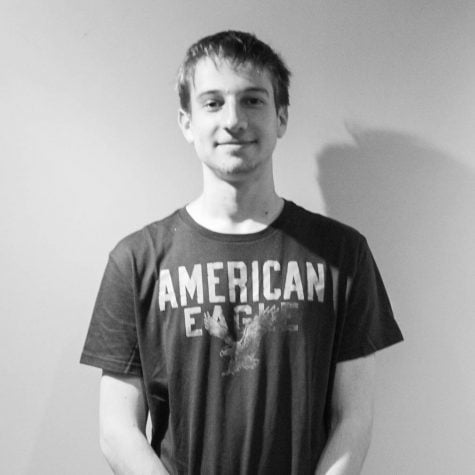Joshua Wong is a 19-year-old college student. He attends the Open University of Hong Kong and believes in liberal ideas like universal suffrage.
Unlike other students, however, he is the de facto leader of the pro-democracy movement in the city.
In the past five years, Wong founded the student activist group Scholarism, rallied over 100,000 people to protest a recent law on education and is currently heading a political party. Despite these accomplishments, Wong is only a microcosm of the puzzle defining the rise of democracy in China’s booming financial center.
“Hong Kong has been influenced by Chinese culture for a very long time,” said Professor of Political Science Geroge Guo. “But after the Civil War, in the 1940s Hong Kong was more influenced by Western Systems.”
For much of the 19th and 20th centuries, Hong Kong was under Western control, so much so that Great Britain had trouble letting the city go.
“Britain tried to negotiate with China in the 1980s to renew their hold on Hong Kong because Hong Kong was a strong colony,” said Guo. “There was free trade, no tax and many international businesses had large bases there.”
Although this attempt failed, it set the roots for Hong Kong’s transition into a democracy and its conflict with the rest of China.
“In 1997, Hong Kong was returned to China,” said Guo. “Before that happened, important political events occurred. To undermine China and keep their influence, Britain promoted democracy, promoted direct election and allowed multiple parties.
“As a response to these attempts, mainland China made a deal with the international world. They would let Hong Kong keep their system for at least 50 years. They would not interfere with its legal system, police system or political system.”
This 50-year law, known as the Basic Law, set the basis for pro-democratic groups to fight for their rights. Its statutes include the continuation of autonomy and the election of a president in a system similar to that of the United States.
But what difference does it make if Hong Kong is autonomous or part of mainland China? According to some, it means the difference between a prosperous city and no economy.
“Hong Kong has a lot of money that circulates within it but doesn’t necessarily go anywhere,” said first-year Spencer File. “The Chinese government wants that money. It hasn’t been able to tax Hong Kong because of Britain’s domain over it. Now that it has a chance to tax Hong Kong, the government is going to exorbitantly raise tax rates for (Hong Kongers), which the city residents do not want.”
File believes the recent democratic movements are resisting this supposed change. On the other hand, political scientists, including Guo, believe that these democratic movements are simply the younger generation looking to obtain more freedoms.
“The general tendency is the elite, or the leadership, want to continue making money,” said Guo.
As a result, they support mainland China, where they can have a better opportunity for commerce.
“In contrast, the younger generation, all intellectuals, want to have more freedom and break away from mainland China,” said Guo.
In 2014, the government of China revised the Basic Law, stating that the interests of China as a whole should prevail over the interests of autonomous Hong Kong. The same year, the government restricted the electoral process by limiting final elections to two or three candidates.
Since each candidate would have to have the majority of the votes of the nominating committee, the action made a deep slice in the democratic movement, where many people could run for office before. This incited further protesting, where Wong’s activism, and activism of similar groups, came into play.
In the same year, Scholarism led tens of thousands of people to repeal the amendment to the Basic Law, causing Hong Kong’s “Umbrella Revolution.” Wong himself wrote numerous essays on democracy and is the current secretary general of the political party Demosisto, whose ultimate goal is universal suffrage.
According to some, this level of activism in Hong Kong is comparable to that found in the United States.
“In terms of raising voices against the current situation, many people in the U.S. are already protesting (against issues) such as the protection of black people’s rights and calling for gender equality,” said senior Yutaro Oda.
The future of Hong Kong is unclear. But one thing is for certain: a transformation is on its way.
“Democracy should prevail, but it should be a true democracy, not an illusion of people having their voices heard,” said first-year Juliana Evans-Anfom. “Their voices need to be truly heard.”







